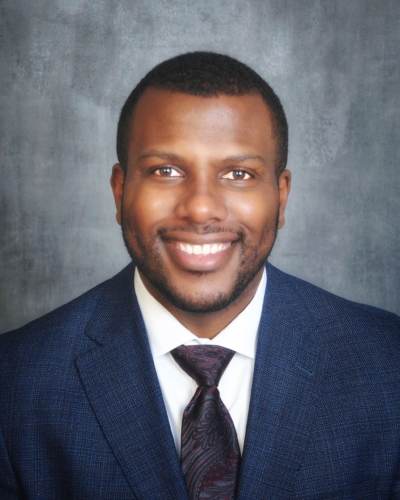
COVID changed the game for Executive MBAs. Forget hitting campus for in-person courses. Just as the Class of 2021 was finding their groove, their programs were shifted online. That meant a new way of learning and networking. Working virtually may have been familiar to these professionals, but the transition sure wasn’t easy.
The new normal meant scaling back expectations, but it also opened up new opportunities. Just ask London Business School’s Taiwo Oyewole. Despite her responsibilities as a strategy advisor for Shell, Oyewole hoped to participate in campus sports activities. Although the pandemic shuttered campus, she connected with peers through other passions.
“As teaching and social events were transferred online,” Oyewole notes, “I was able to lead two interesting panel sessions for the Energy & Environment and the Women in Business clubs.”

Philip Zhou, Columbia Business School
Yes, there was lost time and opportunities for the Class of 2021. Still, they bonded together facing a common foe (COVID) while pursuing a common goal (MBA). Even more, they understood that business school was just the start of their learning — and their community.
“My biggest regret in business school was not being able to get to know every classmate that my school worked so hard to curate for us,” notes Columbia Business School’s Philip Zhou. “We always have post-graduation to do it.”
The pandemic may have been unavoidable, but there are several decisions that the Class of 2021 would’ve done differently. Each year, P&Q asks its Best & Brightest EMBAs to share their biggest regrets about business school. Here are the five biggest mistakes that some made:
1) Fearing Missing Out: “What occurred many times to me, was the “Fear of missing out”. There are several webinars and boot camps on amazing topics with top-notch professionals, but it is all about prioritization. One must understand that it is just not possible to have it all, if you understand it from the beginning, there are no regrets.”
Adriano Pimentel Machado, INSEAD
2) Focusing Less On Grades: “If I could do it again, I wouldn’t worry about the grades – at all. It was easy enough for me to enter business school with the outlook that learning was all that mattered, but at the peak of the term with assignments and lessons coming from every direction. However, it became hard not to regress into familiar patterns of needing some validation of my progress in the form of grades. I would say this: find other ways to celebrate your milestones, ask for feedback from peers or faculty, and try to remember that the goal is to grow in the directions that you want.”
Nisha Garimalla, UC-Berkeley (Haas)

D’Juan Wilcher, UC-Berkeley (Haas)
3) Feeling Inferior To Classmates: “I would work hard to overcome the Imposter Syndrome. At times I felt like a duck in water: graceful above the waterline, but pedaling furiously below. Imposter syndrome is emotionally draining and reduces the bandwidth you have available to engage meaningfully with your colleagues, professors, and course materials. I think it is important to acknowledge, especially in competitive programs, that everyone is professionally impressive. Students are the masters of their own professional domains. As soon as I acknowledged the value I brought to the cohort, I was able to shed the emotional weight and leverage my knowledge and experiences.”
D’Juan Wilcher, UC-Berkeley (Haas)
“It was coming into the first day of class feeling inferior to my classmates. The non-profit industry is full of intelligent, passionate people, but it is undoubtedly an atypical path to an MBA, and I felt that I would be out of place. I was so afraid to give the wrong answer, which is very unlike me to lack confidence. I was completely wrong, and I am lucky that Fuqua brings together so many people of different backgrounds and fosters an excellent learning environment.”
Laura Payne, Duke University (Fuqua)
4) Not Living In The Moment: “My only main regret is that I wish I had listened to those in the classes that came before when they said: “Time flies, enjoy the program as long as you can.” I feel as if the last 20 months have flown by. We should take a pause, and embrace the journey more overall. Many of us, myself included, get bogged down and jump in a race to the finish line, not realizing the amount of knowledge that we gain with each new step in the program. The pressure to perform academically as well as to maintain social relationships may distract us from celebrating the successes more.”
Javi Virk, Southern Methodist University (Cox)
5) Should’ve Started Sooner: “I have learned so much; and I have realized that there are so many things I could have done better in the past. In more practical terms, I regret that the Executive MBA program is as short as it is. Towards the end of each term, I wish we had a few more classes so that we could learn a little more about a given topic.”
Aatif M. Husain
DON’T MISS: THE BEST & BRIGHTEST EXECUTIVE MBAs OF 2021





Questions about this article? Email us or leave a comment below.